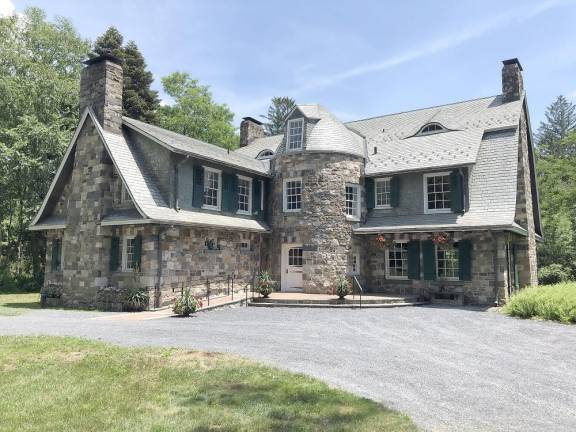Delaware Water Gap NRA releases historic buildings strategy for public review
Dingmans Ferry. A public meeting on the strategy will be held on July 28, with information meetings planned for August. Nearly 300 of the park’s 500 buildings are eligible for the National Register of Historic Places. But the park has a maintenance backlog of $147 million, with $55 million on buildings alone.

Delaware Water Gap National Recreation Area released on July 12 a draft Historic Buildings Strategy (HBS) for a 30-day public review and comment period. Comments will be accepted from July 12 through August 10, 2021.
There are over 500 buildings in the park, nearly 300 of which are listed or eligible for listing on the National Register of Historic Places. The park’s most recently published maintenance backlog was calculated at $147 million with $55 million on buildings alone (2018). The draft HBS outlines priorities for the long-term management, preservation, and maintenance of historic buildings in the park and will guide park management in making decisions on funding and preservation efforts. This is the third and final civic engagement period on the strategy since the project was launched in 2016.
“The quantity and condition of buildings in the park exceeds our funding and maintenance capabilities,” said John Lambert, chief of facility management. “The Historic Buildings Strategy is an important tool that will guide park management in making strategic, prioritized and informed maintenance and preservation decisions about the park’s historic buildings.”
In 2017, the park asked for public input on the multi-step prioritization strategy that was developed as an objective, criteria-based tool to help the park prioritize maintenance and funding for historic structures.
“During this final public review and comment period, we are asking the public to check our work,” Superintendent Sula Jacobs said. “We developed the strategy, got feedback on how to improve it, and then we used it to categorize each building or property. Did we put the buildings in the right categories? Is there any missing or incorrect information, in particular information that would change how a building is prioritized?”
Criteria for inclusion
To be included in the HBS, a property or building must meet three criteria: it must be listed or eligible for listing in the National Register of Historic Places; be older than 45 years in age; and not be severely deteriorated.
Many of the 286 buildings that meet the criteria for inclusion in the HBS are found in groupings, such as on a former farmstead where there is a house, outbuildings, and agricultural landscape features such as fields and fencerows. These are referred to as “historic properties” in the HBS. There are 97 historic properties within the park. Those properties have been prioritized into one of four categories based on review and analysis of historic significance, interpretive value to park visitors, physical condition, and potential for future use. The categories and descriptions are as follows:
● Category A: These properties are top priorities for preservation due to their historic significance. They are in good or fair condition have high interpretive value. Category A properties that are currently in use are a top priority for continued maintenance and rehabilitation projects. Properties that are currently vacant are excellent candidates for rehabilitation or renovation and adaptive reuse.
● Category B: These properties are often not as historically significant as Category A properties but are in good or fair condition and have high or moderate interpretive value. Properties that are currently in use will continue to be maintained, and properties that are currently vacant are good candidates for rehabilitation and adaptive reuse.
● Category C: These properties may have some historic significance but are in fair or poor condition and have fair or poor interpretive value. The park would issue requests for proposals for as-is leasing for properties and would not perform maintenance other than what is needed for safety and security. If properties are not able to be leased, they would be moved into Category D.
● Category D: These properties are in fair to poor condition and have poor interpretive value. These properties would not be preserved in the long term.